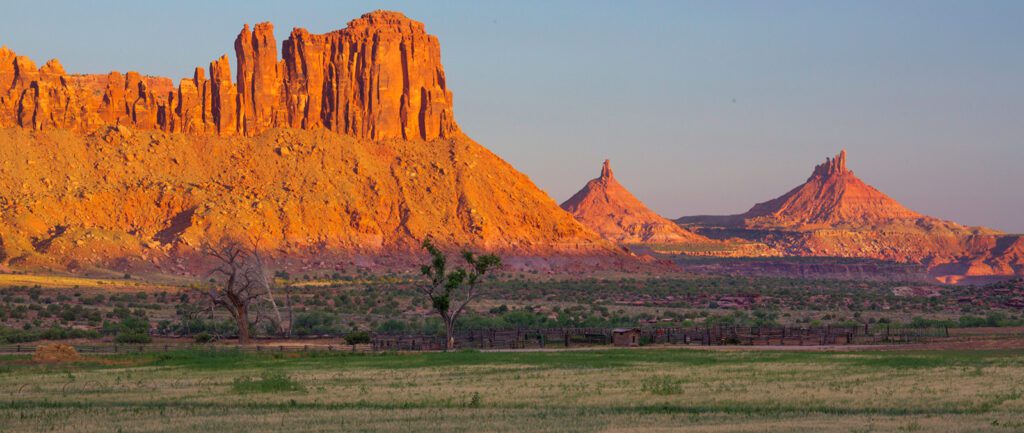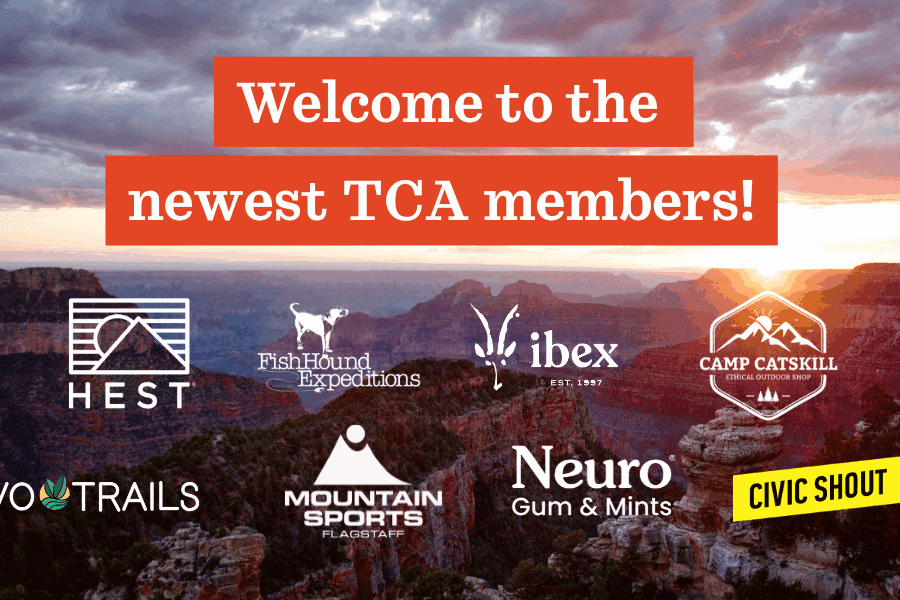Budget reconciliation is a powerful legislative process that fast-tracks certain types of bills to address federal budget issues. It’s a tool often leveraged by the majority party because it only requires a simple majority – 51 votes for bills to pass – but the most recent budget reconciliation process was anything but simple.
The primary focus areas for this Congress’ first use of budget reconciliation were energy and healthcare, two topics that can generate quite a bit of controversy – and so they did. Some members of congress proposed creative – albeit dangerous – ideas to cut spending and generate revenue. One such initiative that garnered significant attention: selling off public lands.
But businesses weren’t letting public lands get sold this way without a fight.
Each chamber had a proposal to sell public lands
Two proposals – one in the House and one in the Senate – were introduced to privatize public lands as a means to bring in revenue and address the nation’s deficit. Both proposals were problematic – paying for proposed tax cuts and spending reductions by selling public land sales as a revenue source would have been an unprecedented move by our national leaders. But luckily, both were defeated.
First, an amendment introduced by Representative Mark Amodei (R-NV-2) and Representative Celeste Maloy (R-UT-2), was introduced in the House Natural Resources Committee to sell approximately 500,000 acres of public lands in Nevada and Utah.
Next, several proposals were introduced by Utah Senator Mike Lee (R-UT) in the Senate Energy and Natural Resources Committee that mandated the sale of millions of acres of Bureau of Land Management (BLM) and U.S. Forest Service (USFS) lands across 11 Western states to be used for housing and other housing-related infrastructure. Although the senator was forced to amend his proposal to meet procedural requirements several times, the most detrimental version of his proposal would have totalled 250 million acres of public lands that may have been eligible for sale, including local recreation areas, wilderness study areas, inventoried roadless areas, critical wildlife habitat and big game migration corridors.
Why did this matter for businesses?
This threat to public lands was a threat to economies, communities, and wildlife. Both sell-off proposals prioritized short-term federal government profit over long-term stewardship and local community benefit. They also lacked meaningful investment back into local communities, didn’t require sales to be used for affordable housing, and didn’t provide for citizen input and participation. If passed, they would have laid the groundwork for putting iconic landscapes, ecosystems, and local economies at risk, undoubtedly harming companies who are reliant on the access to well-managed, accessible public lands.
As expected, TCA, our member companies, and members of our Brands for Public Lands coalition were extremely alarmed by both attempts to pay for tax cuts by sacrificing public lands at the expense of the outdoor recreation economy – so we quickly mobilized in the best way we could — by creating a unified message, leveraging our brand names and customer bases, and contacting decision makers directly to ensure the business voice was heard.
And it worked.
What did TCA and Brands for Public Lands do to stop the sell-off?
We met directly with Congressional Offices. TCA facilitated over 60 meetings with congressional offices at our annual D.C. Fly-in. Each meeting included a discussion about the budget reconciliation and our request to leave public land sales out of it. Nearly half of those meetings were with Republican offices from Western states, most of whom agreed on the fundamental threat of a potential large-scale sell-off. By bringing business representatives to D.C. and highlighting the economic threats of sell-off to Members of Congress and staff, we helped illuminate why this issue was such a dangerous proposition, and the serious business implications this effort would create.
We wrote and called Congress members. We mobilized businesses to stand together through business sign-on letters and make phone calls directly to Members of Congress in the most high stakes moments of negotiations.
- When the House proposal was making its way through the chamber, TCA and Brands for Public lands members took a strategic approach to contacting members of the newly formed Public Lands Caucus in the House of Representatives and asked them to call Speaker Johnson to request that he remove the Amodei amendment before sending the bill to a floor vote. Over 60 companies signed a letter to House leadership requesting the removal of the amendment.
- As Senator Lee’s proposal moved through the Senate, TCA and Brands for Public Lands took a more targeted approach and sent a letter signed by over 100 businesses to the Majority Leader Thune and Minority Leader Schumer, again requesting that public land sell-offs be removed from the budget reconciliation process.
- TCA also empowered business leaders and executives to make calls and write directly to their Members of Congress, explaining the threat of sell-offs and how it would personally impact their company and community. This one-on-one outreach proved incredibly important as many Western Republicans needed to understand that the business community was against sell-offs in the package.
We told our stories. Companies from both TCA and Brands for Public Lands leveraged their brand name, voice, and audience to help spread the word about what was happening.
- Dozens posted on social media, adding their own messaging and tone to the threat, galvanizing customers to take action themselves.
- Thirty five companies added their logo to print ads in local newspapers including The Billings Gazette, The Charlotte Observer, The Idaho Statesman, and the Salt Lake Tribune. These ads were strategically placed in media markets of key decision makers who we hoped may be persuaded to vote against sell-offs.
- Three op-eds by TCA and Brands for Public Lands members were placed in the Bozeman Daily Chronicle and the Idaho Statesman – allowing personal stories of connection to public lands shine through the noise.
At the end of the day, across party lines, our business members, their customers and audiences, voters, and communities overwhelmingly support the responsible management and protection of public lands. Using reconciliation to sell off public lands is not responsible public land management, nor should public lands and the powerful economy they underpin be on the negotiating table in this process.
Our Impact
All said, over 140 companies took action against these public lands sell offs. Those companies represented an impressively diverse set of industries and user groups – from hunting and fishing, climbing and boating, photography and food and beverage, and so much more. They also represented a wide range of company sizes hailing from different geographies; big names like Patagonia and REI as well as local outfitters and independent retailers across dozens of states. The widespread response was undeniable – outdoor businesses simply weren’t going to let this happen.
Ultimately, months of advocacy by public lands advocates across the spectrum culminated in Senator Lee removing his proposed sell-off from the package. The threat of sell-off without any due process or avenues for public feedback was averted for the time being.
The Conservation Alliance team is incredibly proud of the work we achieved and the impact we collectively made to stop the sell offs. However, the fight is long from over. Other items remained in the final bill that are dangerous for our public lands as well as the health and well-being of communities across the U.S. We are also facing additional sell-off threats via administrative, legislative, and judicial efforts. TCA members will continue to advocate for pragmatic solutions to public lands management that address the needs of communities, the outdoor recreation economy, and our natural resources.




